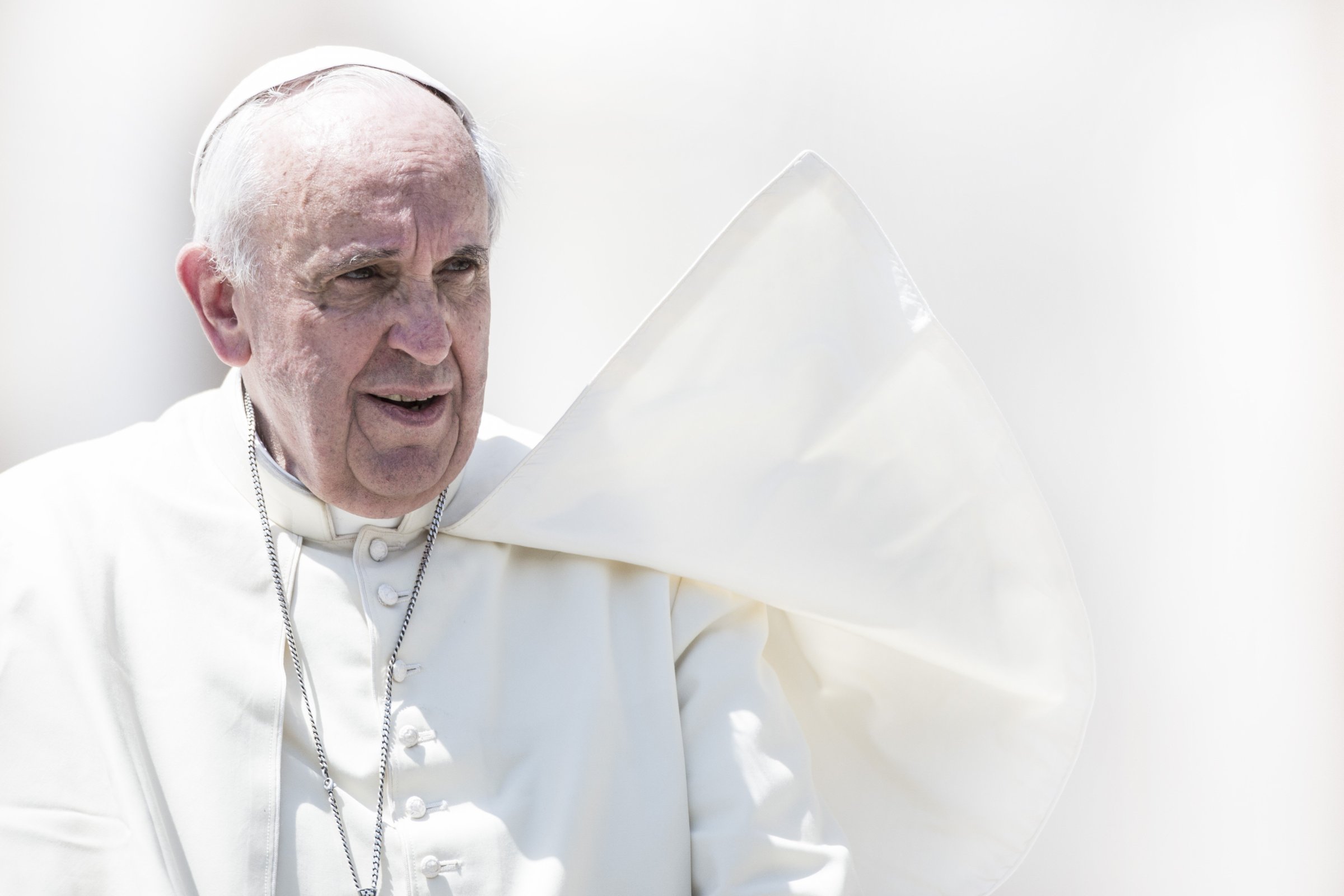
Pope Francis hasn’t even left for his weekend tour of the Holy Land and his trip is already breaking with tradition.
He won’t use a bulletproof car, unlike most every head of state to visit the region, opting instead for an open-top vehicle. He has invited an imam and a rabbi to travel with him—the first time an official papal delegation has included members of other faiths; Rabbi Abraham Skorka and Omar Abboud, a leader of Argentina’s Islamic community, are the Pope’s longtime friends from Argentina. He’s also emphasizing that his trip is a pilgrimage with a “strictly religious” purpose, as he said in his general audience on Wednesday.
Pope Francis is also packing an enormous amount into a short weekend: three regions in three days, and at least 13 speeches or homilies.
On Saturday, he flies to Amman, Jordan, where he will meet King Abdullah II, whom he has already met with twice at the Vatican, celebrate mass at the International Stadium, visit the site of Jesus’ baptism, and meet with refugees. Sunday morning he will helicopter to Bethlehem in the West Bank. There he will meet with Mahmoud Abbas, president of the Palestinian Authority, whom he met in Rome last October, and then celebrate mass in Manger Square, tour the Church of the Nativity that marks Christ’s birthplace, and meet with children from the refugee camps of Deheisheh, Aida, and Beit Jibrin.
Sunday evening he will head to Jerusalem and meet with the Ecumenical Patriarch of Constantinople to celebrate the 50th anniversary of this historic meeting between Pope Paul VI and Patriarch Athenagoras. On Monday, he will visit the Grand Mufti of Jerusalem, the Western Wall, and Yad Vashem. He will spend time with the two Chief Rabbis, and with Israel’s president Shimon Peres and Prime Minister Benjamin Netanyahu. To wrap it all up, he will meet with men and women religious in the church of Gethsemane at the foot of the Mount of Olives, celebrate mass one more time, and then depart for Rome at 8 p.m.
The rigorous schedule aside, the trip’s unexpected and symbolic moments may be the most significant. The Holy Father has made it clear that, in all things, the church must affirm mercy, and no doubt that theme will emerge again this weekend. Francis is a canny operator, aware that saying mass at the island of Lampedusa indicates that the Vatican stands with the immigrant, or that washing the feet of Muslim women pushes the church towards humility. This trip’s immediate focus may not be political, but in a region where politics and religion have been enmeshed for centuries, it is hard to imagine that even his simplest actions—where he celebrates mass, for whom he prays, and what or whom he blesses—will not carry both spiritual and social weight.
Anticipation for what is to come, both planned and unexpected, is running high. Jordan has a website, far more sophisticated than the Vatican’s, dedicated solely to the less-than-24-hours visit. Israel has assigned an extra 8,000 officers to security detail in Jerusalem. For now, however, Francis has asked people worldwide to simply pray. He has two prayer requests: one, for his meeting with Ecumenical Patriarch Bartholomew I, who represents the Eastern churches, and two, for peace in the region. The land, as he said in his Wednesday audience, “has suffered greatly.”
More Must-Reads from TIME
- Donald Trump Is TIME's 2024 Person of the Year
- Why We Chose Trump as Person of the Year
- Is Intermittent Fasting Good or Bad for You?
- The 100 Must-Read Books of 2024
- The 20 Best Christmas TV Episodes
- Column: If Optimism Feels Ridiculous Now, Try Hope
- The Future of Climate Action Is Trade Policy
- Merle Bombardieri Is Helping People Make the Baby Decision
Contact us at letters@time.com